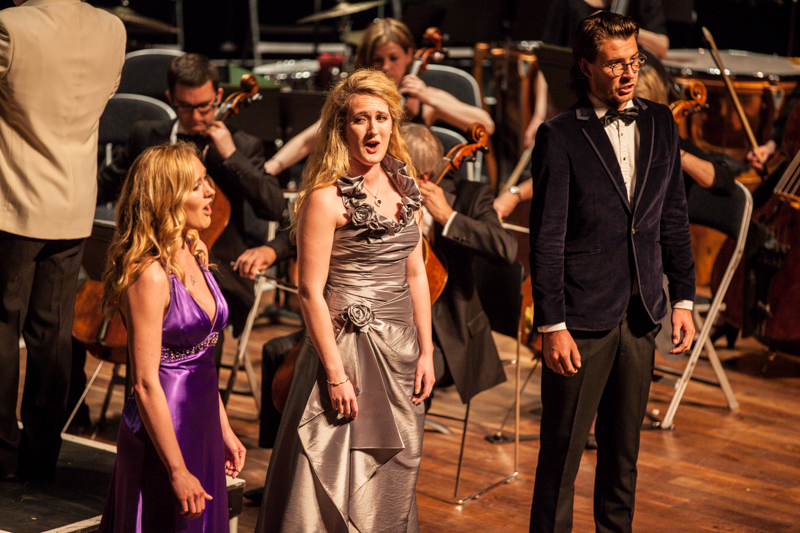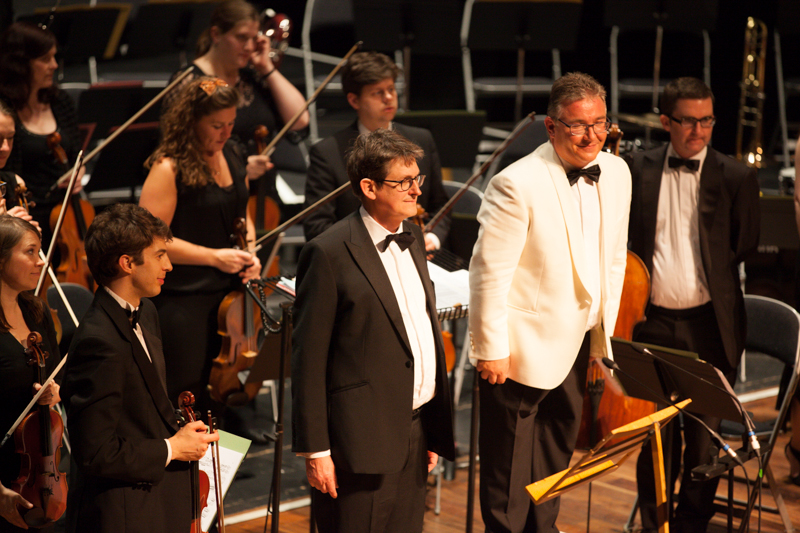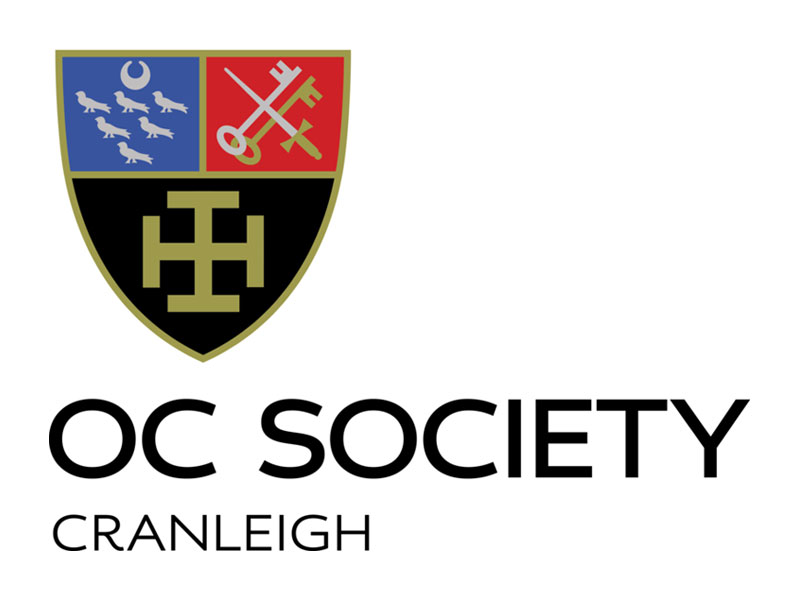 A number of Old Cranleighans featured prominently at the special concert to celebrate Guy Waller’s 17 years as Headmaster at G Live on April 27.
A number of Old Cranleighans featured prominently at the special concert to celebrate Guy Waller’s 17 years as Headmaster at G Live on April 27.
The Headmaster was keen to let the large audience know that the evening’s performance was not so much about him but about celebrating “something far more important than a mere changing of the guard: Cranleigh’s long-standing and passionate commitment to the performing and creative arts.”
The School welcomed back staff and performers from the past, many of whom would have recognised their younger selves, or their Art work, in the wonderful selection of photographs going back over the years that had been assembled as part of this celebration, where the choice of music may well have been seen as somewhat ‘idiosyncratic’ but it certainly reflected the diversity and the talent of all those involved.
The concert programme was very much a reflection of Guy Waller’s own musical tastes. It perhaps takes a brave person to include “I’m going to wash that man right out of my hair” in his farewell concert, though this was balanced by the pun on which the whole evening ended. The large volunteer choir certainly sent him on his way to retirement with gusto and were joined at the end by all the vocal soloists. It was a special pleasure that those included five young Old Cranleighan singers: Tom Lyle, the Dominics Hammond and Murray, and Lucy and Hilary Cronin.
The evening reflected a sort of extended family of the arts at Cranleigh, not least as the Cronins’ late father was a much-loved colleague and musician as well as a parent. The five singers helped make this an enchanted evening among friends rather than strangers and the last-named three earlier sang the famous trio from Cosi Fan Tutte with wonderful blending and beautiful tone.
An equally wonderful highlight was the Mozart concerto (K466 in D minor) which began the programme. Richard Saxel’s erudite programme notes mentioned his practising on a 1789 instrument and the value of this was clear from the clarity of articulation and crisply stylish phrasing that he brought to the G Live Steinway. Marcus Pashley’s sympathetic accompaniment and the alert playing of the orchestra, not least the woodwind, meant that this was as close to a meeting of musical minds one could imagine on just one afternoon’s rehearsal. The admiration of old-timers and young alike was palpable in the warmth of the applause and Richard himself was amused by the pupil who was so staggered by his feats of memory and virtuosity that she dubbed him a ‘Ninja pianist’.
Having called on the Music Department for the Mozart, the Head brought real prestige to the evening by inviting Alan Rusbridger to narrate Vaughan Williams’s An Oxford Elegy. Rusbridger is, of course, famously, the editor of The Guardian and was (in the 1970s) educated by the Cranleigh English Department. He agreed to narrate under the charming condition that he be allowed to play third clarinet in the other pieces. The woodwind section was impressed by his musical facility and even more by his modesty and camaraderie: the old Manchester Guardian spirit!
As speaker Rusbridger eschewed the rhetorical style employed by John Westbrook on the famous 1969 recording for an understated delivery, allowing the colours of the orchestra and the soft soothing of the chorus to be as much the focal point as the poetry of Matthew Arnold. The quality of singing was assured by employing the hand-picked Cranleigh Voices, trained and joined by Phil Scriven.
There is no shortage of farewell pieces for such a concert but, as the Headmaster wrote in the programme, for a Wagnerian who has on his teaching staff the wife of a young bass-baritone, he had to include Wotan’s farewell to his daughter that ends Die Walküre. There were lighting effects used to suggest the Feuerzauber (the translation always sounds rather naff) and Marcus Pashley brought his own love of Wagner to the shaping of the famously sweeping phrases in this well-loved ‘bleeding chunk’.
 Bleeding chunks of Schoenberg are more rare and those who wondered why this concert was not held in the Devonport Speech Hall might be interested to know that when Boulez rehearsed <I>Gurrelieder</I> in there for the Proms, in the late 80s, the orchestra took up the whole of the hall apart from the stage. Admittedly Marcus Pashley had to use slightly smaller forces for practical reasons but it was fascinating that, as a result, details of the score (such as the parts for the two harps) emerged more clearly than on any of the twenty-odd recordings I have of the piece.
Bleeding chunks of Schoenberg are more rare and those who wondered why this concert was not held in the Devonport Speech Hall might be interested to know that when Boulez rehearsed <I>Gurrelieder</I> in there for the Proms, in the late 80s, the orchestra took up the whole of the hall apart from the stage. Admittedly Marcus Pashley had to use slightly smaller forces for practical reasons but it was fascinating that, as a result, details of the score (such as the parts for the two harps) emerged more clearly than on any of the twenty-odd recordings I have of the piece.
Marcus skilfully stitched together the fifth, sixth, ninth and tenth sections of Part One and recognition should be given (as with Richard Saxel) of the hours, weeks and months of preparation needed to study and arrange the scores. Mention also to Kevin Weaver, the Merriman Concert Orchestra’s superb leader, for the work involved in writing the bowing instructions into every bar of every part for every string player and then having to rub out the pencil marks before the parts are returned. The singers were the Heldentenor, Neal Cooper, as Waldemar and Meeta Raval as his ‘wunderliche’ Tove, whose services came thanks to Cranleigh Music’s world-renowned vocal coach, Kathryn Harries, Director of the National Opera Studio.
To follow Schoenberg with Richard Rodgers is not so odd when one remembers that they were both German Jews by descent and both living in America at the time South Pacific was composed. The tunes from this 65-year-old show certainly went down well with the audience who came from far and wide to meet old friends, hear old friends and celebrate the long tradition of excellence in the Creative Arts at Cranleigh.

